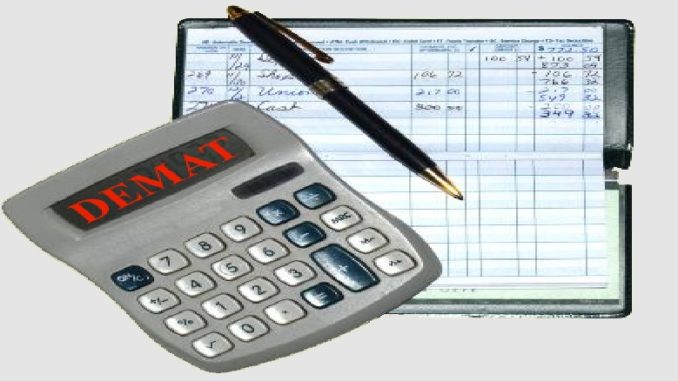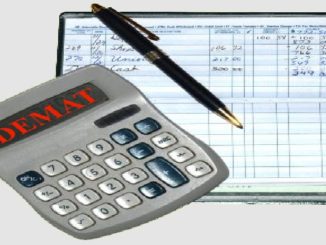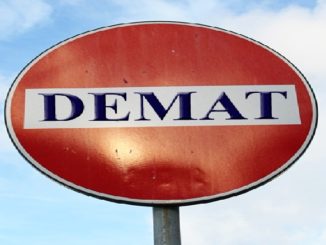
Why you need Demat account?
Having a demat account has become just as essential as having a bank account. Investment in equity or debt securities is no longer possible without demat account. Effective 1st April 2019, transfer of securities is allowed only in demat mode. Thus demat account is part of essential toolkit for all investors, big or small.
Promote equity culture among retail investors
SEBI has been working to promote retail investor participation in equity markets including IPO investments. With more and more retail investors coming to equity markets, need arises for them to open demat account with Depository Participant (DP).
Cost of maintaining Demat account
Unfortunately for the retail investors, demat account doesn’t come for free. Apart from transaction charges applicable when buying or selling securities, there are other associated cost with having a demat account. While demat account opening is typically free, Annual Maintenance Charges (AMC) is applicable for demat account. AMC amount varies from DP to DP, and could range anywhere from Rs 300 to 1000 per annum.
This additional cost in the form of demat account AMC can become impediment for new retail investors to participate in equity markets. With this background, in 2012 SEBI introduced variant of demat account called Basic Services Demat Account (BSDA).
What exactly is BSDA?
BSDA is a free or low cost demat account for small retail investors. It is akin to no frills account and aims to provide the basic service of demat account in low cost. Purpose of BSDA is to make investing cost effective for the small retail investors.
Who can open BSDA?
BSDA is meant for retail individual investors. Maximum value of holding for BSDA was set at Rs 2 lakhs when BSDA was introduced in 2012. In 2019, limit of holding was enhanced to Rs 4 lakhs, with maximum Rs 2 lakhs as debt securities and Rs 2 lakhs as equity securities.
Retail individual investor who wishes to open BSDA cannot have more than one demat account across all depositories.
AMC charges of BSDA
When introduced in 2012, AMC charges applicable for BSDA was as under:
- Value of holding upto Rs 50,000 : Nil
- Value of holding between Rs 50,001 and Rs 2 lakhs : Maximum upto Rs 100 per year
Effective June 2019, AMC charges for BSDA has been revised by SEBI as under:
- Value of holding of debt securities upto Rs 1 lakh : Nil
- Value of holding of debt securities between Rs 1 lakh and Rs 2 lakhs : Maximum upto Rs 100 per year
And
- Value of holding of equity securities upto Rs 50,000 : Nil
- Value of holding of equity securities between Rs 50,000 and Rs 2 lakhs : Maximum upto Rs 100 per year
Thus now you can maintain upto Rs 150,000 (Rs 100,000 debt and Rs 50,000 equity) holding in demat without paying any AMC. Further holding upto Rs 400,000 (Rs 200,000 debt and Rs 200,000 equity) can be held by paying only Rs 100 per year.
How is value of holding calculated?
Value of holding is calculated by the Depository Participant based on the daily closing price of the security or NAV of the mutual fund units. In case there is no trading in any security on particular day, last traded price is considered for calculating value of the holding.
Services provided for BSDA
Quarterly transaction statement and annual statement of holding is required to be provided to retail individual investors holding BSDA. Email statements are free of costs and upto 2 physical statements are free, beyond which charges upto Rs 25 can be levied by the DP.
Good idea, poor execution?
There is no doubt BSDA is well intentioned measure to encourage retail investors to open demat account without worrying about high and recurring AMC. However actual conversion of normal demat accounts to BSDA was poor in the initial years.
BSDA was introduced in 2012 and SEBI directed the depositories to give retail investors option to convert regular demat account to BSDA. Depositories would have complied with the guidelines and given option to retail investors to convert to BSDA, actual conversion was low due to low investor awareness and understanding. Thus while intention was good, actual benefit to retail investors was minimal.
Corrective steps…
In order to correct this anomaly, SEBI came out with revised guidelines in 2015. Essentially SEBI asked the DP to not only give the option to eligible retail individual investors which comply with stated criteria, to shift to BSDA, but automatically convert such accounts to BSDA. Such automatic conversion to BSDA will not be done only on specific request by the investor to retain normal demat account.


Leave a Reply